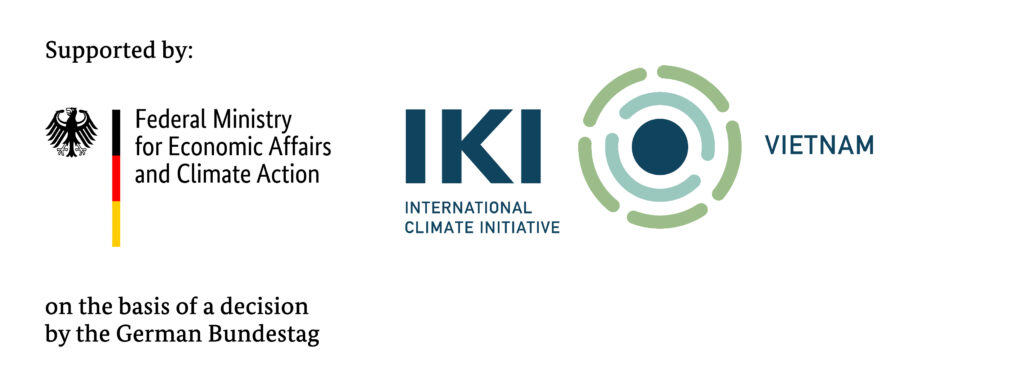The Policy Advice for Climate Resilient Economic Development (CRED) programme supports the three pilot countries Georgia, Kazakhstan and Vietnam in the development of human and technical capacities in the economic and planning ministries, subordinate sectoral authorities as well as in the institutes in charge of economic modelling. Each country uses a specific modelling approach and the modelling results to advise the relevant ministries in making actionable recommendations for systematic adaptation measures at national, regional and sectoral strategies and policies, supporting for the implementation of NDC goals and national adaptation plans (NAPs).
Within the framework of CRED Vietnam, a Dynamic General Equilibrium Model for Climate Resilient Economic Development (DGE-CRED) has been developed by the Halle Institute for Economic Research (IWH) to assess the economic implications of different adaptation measures. Host of the DGE-CRED model is the Central Institute for Economic Management (CIEM).
The DGE-CRED model runs in Matlab and is calibrated to represent the current economic structure. Sectors in the model correspond to economic activities and the classification by the General Statistical Office (GSO). It is possible to modify the number of sectors and regions by aggregating the official data. The core of the model can be extended to feature different aspects of the economy. The link between climate and the economy is modelled using sector and region-specific damage functions. Damage functions can affect the productivity of all production factors, or only labour productivity, or the formation of capital.
As part of the project, training on economic modelling skills will be provided to researchers from related government agencies, research institutes and universities who have background in economics and some experience with economic modelling. The 1st training course took place in August 2020 and attracted 16-18 participants from Ministry of Investment and Planning, Ministry of Environment and Natural Resources and Ministry of Agriculture and Rural Development as well as public universities. This training focused on an overview of international climate and economic models, data processing, the theoretical foundations of macroeconomic modelling and the introduction to practical training in macroeconomic modelling. The 2nd training course scheduled for June 2021, will deal with training in climate change and economic development scenario analyses. To support the technical training of the DGE-CRED model, a series of Matlab training is planned to take place before and after DGE-CRED model training in June 2021.
For more information about the macro-economic models in use check the CRED Project Brief: Managing Economic Risks of Climate Change.
